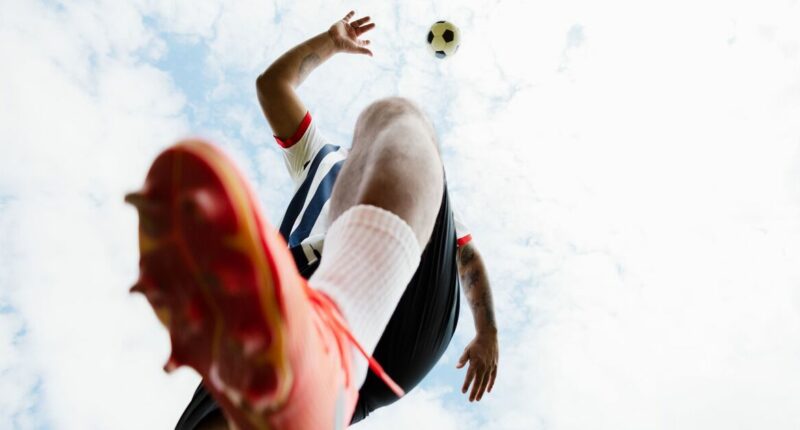Share this @internewscast.com
Over a third of those who wear glasses engage in sports without having proper vision. A survey of 2,000 adults with long or short-sightedness revealed that 42% have misjudged distances or made errors after removing their glasses for sports activities. Consequently, 10% have suffered injuries due to their compromised eyesight.
More than half (52%) refrain from wearing glasses during sports out of concern they might get broken, while 44% worry they could be knocked off during exercise. Furthermore, 32% mention sweat makes them slip, and 29% are troubled by foggy lenses. The study pinpointed football and running as the leading sports for damaging glasses.
Additionally, only 37% feel assured their glasses will stay in place during activities, while 29% say their eyewear hinders their enjoyment of sports.
A third have even experienced anxiety while wearing glasses in active or ‘risky’ situations where they might fall off.
Giles Edmonds, director of clinical services at Specsavers, which conducted the survey, commented: “This issue is more prevalent than often realized. In sports settings, glasses are inherently more susceptible to damage, leading many to avoid using them altogether during such activities.”
“Depending on their vision, this could have a fundamental impact on their performance or even increase the risk of injury.”
Damage to glasses during sports often results in broken or bent frames, scratched lenses, and stretched or broken arms.
The study also highlighted that 64% have encountered damage to their eyewear from various non-sport-related activities. The primary causes include accidentally dropping them, sitting on them, or falling asleep while wearing them.
The majority of people have attempted to repair the damage them themselves but 42 per cent confessed their DIY efforts were unsuccessful, according to data from OnePoll.com.
For those who engage in sports activities, 32 per cent have opted for either contact lenses or sports goggles to avoid missing out.
Giles Edmonds, from Specsavers, added: “Contact lenses are the natural option when it comes to maintaining perfect vision in a sporting environment.
“Unlike spectacles, contacts move with your eyes, eliminating peripheral vision restrictions that can be crucial in fast-paced sports environments. They don’t fog up, slip down your nose due to sweat, or risk breaking during contact sports.
“Daily disposable contact lenses are particularly ideal for sports as they’re fresh, hygienic, and easily replaceable if lost or damaged.”












